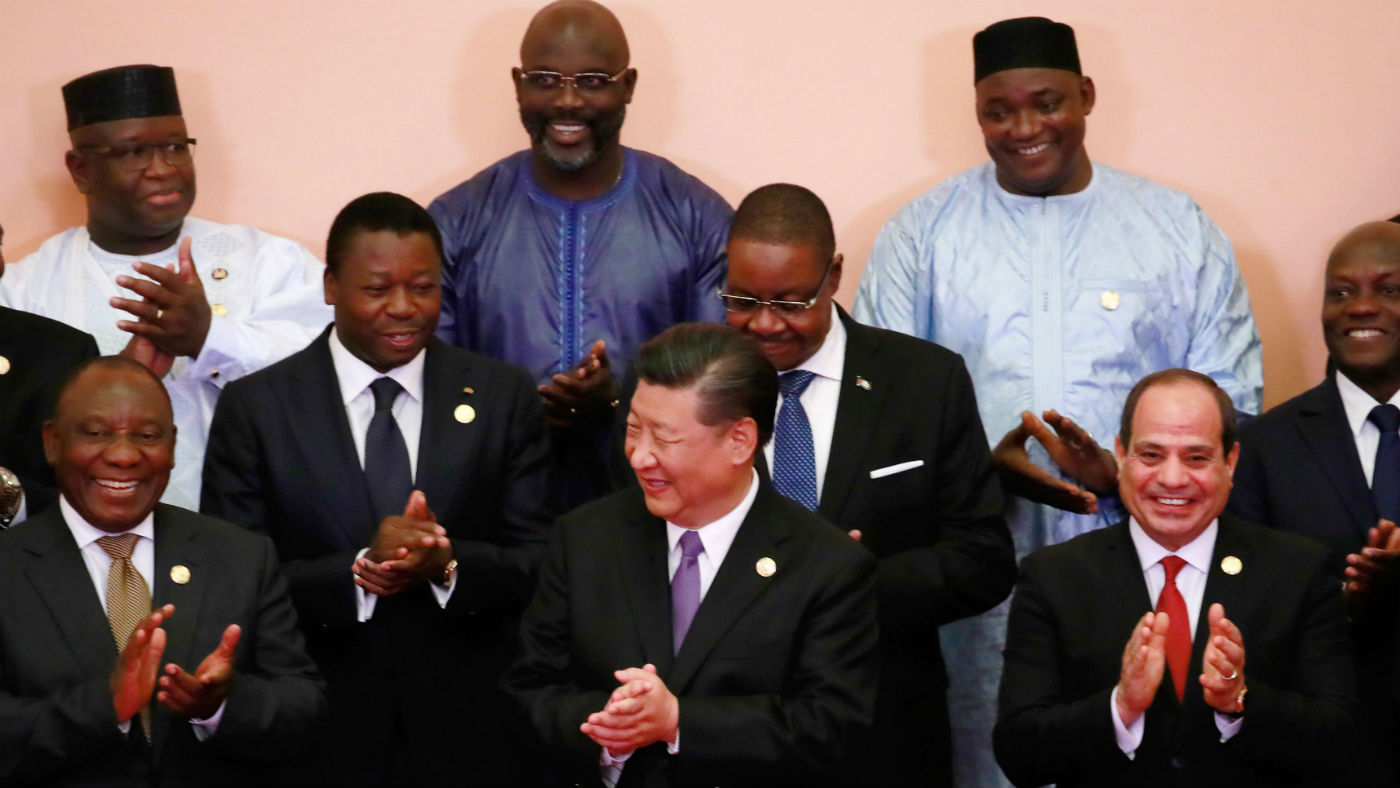China makes soft-power play for Africa
President Xi Jinping offers $60bn investment in the continent - but denies engaging in ‘debt trap’ diplomacy

A free daily email with the biggest news stories of the day – and the best features from TheWeek.com
You are now subscribed
Your newsletter sign-up was successful
China’s President Xi Jinping has confirmed another $60 billion (£46.7bn) in financing for Africa, as he looks to ramp up the country’s already sizable influence in the continent, which critics have already termed ‘debt trap diplomacy’.
In what is being viewed as a power play in the face of renewed US and European interest in the continent, Xi used his speech at the start of a major summit with African leaders to write off some debt for poorer nations.
Promising “tangible benefits and successes that can be seen, that can be felt”, Xi said China would prioritise investment in projects on green development and environmental protection rather than “vanity projects”.
The Week
Escape your echo chamber. Get the facts behind the news, plus analysis from multiple perspectives.

Sign up for The Week's Free Newsletters
From our morning news briefing to a weekly Good News Newsletter, get the best of The Week delivered directly to your inbox.
From our morning news briefing to a weekly Good News Newsletter, get the best of The Week delivered directly to your inbox.
Jeremy Stevens, international economist for the Standard Bank Group, says the Forum on China-Africa Cooperation (FOCAC) has become the “Olympics of China-Africa” relations. Every African nation is represented at the summit bar eSwatini, the only African country which still recognises self-ruled Taiwan and which has so far rejected China’s overtures to ditch Taipei and recognise Beijing.
Yesterday’s funding commitment matches that pledged by Beijing at the last FOCAC summit in South Africa three years ago and will include $15 billion of aid, interest-free loans and concessional loans, a credit line of $20 billion, a $10 billion special fund for China-Africa development, and a $5 billion special fund for imports from Africa.
Data from the China-Africa Research Initiative (CARI) at Washington’s Johns Hopkins University School of Advanced International Studies shows China loaned around $125 billion to the continent between 2000 and 2016.
Earlier this year, the IMF warned that the African continent is facing a growing debt crisis, with 40% of low-income countries now experiencing or at high risk of debt distress.
A free daily email with the biggest news stories of the day – and the best features from TheWeek.com
This has led to accusations China is engaging in “debt trap” diplomacy - something Chinese state media has vehemently denied.
An editorial in the widely-read Global Times newspaper, published to coincide with Xi’s speech, said: “In terms of cooperation with China, African countries know best.”
“Western media deliberately portray Africans in misery for collaborating with China and they appear to have discovered big news by finding occasional complaints in the African media about Sino-Africa cooperation,” it added.
Reuters reports that Beijing “has also fended off criticism it is only interested in resource extraction to feed its own booming economy, that the projects it funds have poor environmental safeguards, and that too many of the workers for them are flown in from China rather than using African labour”.
Although China has now surpassed France, India and the US as Africa's largest trading partner, total trade between China and Africa slowed from $220 billion in 2014 to $170 billion in 2017, “prompting concerns that relations might be cooling”, says CNN.
Janet Eom, a researcher at CARI, says this decline is mostly due to falling commodity prices, but given China's recent trade war with the US, Beijing’s commercial relationships with African nations are likely to become “much more important”.